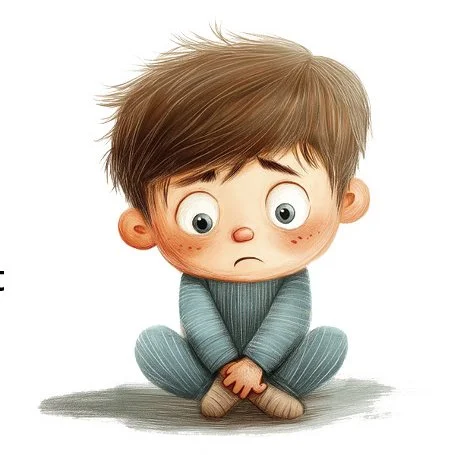By Sherris Cottier Shank
At the heart of well-being is an embodied sense of peace and equanimity.
Peace is the felt experience of an inner sanctuary—a place of tranquillity and calm detachment that you can always access. Equanimity is composure under stress. It is a deep internal knowing that no matter what happens you will handle it and be okay.
Embodied peace and equanimity empower you to choose your response to circumstances rather than react in the heat of the moment. Regardless of the circumstance confronting you, whether physical, emotional, or spiritual, your internal navigation system guides you to a response that serves your highest good.
Peace of mind and equanimity affect every aspect of your well-being: physical, emotional, and spiritual. The fastest, most effective path to developing this desirable state that I have discovered utilizes hypnosis.
My personal experience
When I discovered hypnotherapy, I wondered where it had been all my life. Why had it taken so long for me to find it?
Like many other people, I suffered from depression for decades, and just like my clients today, I searched far and wide for solutions. I embarked on years of talk therapy and spiritual counselling. I took antidepressants. I researched endlessly. Over many years, I read and/or listened to every book, seminar, interview, and presentation I could find on psychology, spirituality, and the brain. Everything I did helped, but nothing freed me completely from the abyss.
It took a massive medical crisis and 15 months of astonishingly slow recuperation for me to discover hypnotherapy. During that lengthy period of physical healing, there wasn’t much I could do except read and sleep, and I had plenty of time to ponder the state of my life.
In one of those "the writing is on the wall" moments, I realized that I could not continue the way I had been and that my whole life needed to change. I asked myself repeatedly, “What does my soul want?” What a blessing that extended recovery became! It created space for the answer to that question to float up from my subconscious mind and allowed the more hidden aspects of my inner being to emerge. My deep spirituality rose to the surface, and with it came a longing to help others.
One day, while idly surfing the Internet, I stumbled upon an article about hypnosis in Psychology Today. As I read it, something inside me lit up and stood at attention, and I felt compelled to learn more. I had observed in the hospital that the medical community had two things to offer me: drugs and surgery. Hypnosis appeared to be an alternative healing modality that could have helped me relax and accept what was happening to me so I could adapt to my current physical needs.
The more I explored, the more I wanted to know, and my thirst for knowledge about hypnotherapy grew at every step. I read every article and book on the subject that I could find and researched places where I might study hypnosis further. As soon as I was well enough, I enrolled in a training program at the Clinical Hypnosis Institute and discovered the tool I’d been looking for my whole life.
I was in heaven.
Now, having experienced the power of hypnosis in my own life and with hundreds of clients, I am endlessly grateful for its ability to heal deeply buried emotional wounds that stand in the way of experiencing peace and equanimity.
Why is hypnosis so fast and effective?
As we go about our daily lives, we are primarily aware of our conscious mind which is exquisitely attuned to solving problems and planning for the future. We are unaware that the conscious mind is only 10% of our mind. Running beneath the surface is the other 90% of our mind, the subconscious mind: a powerhouse of immense abilities that can help us make the changes that allow peace of mind and equanimity to develop.
The great gift of hypnosis is that it allows us to tap into the power of our subconscious mind which runs our lives. Not only does the subconscious mind control our body's physical processes, it is also the storehouse for our memories, emotional wounds, desires, and dreams.
Here's the truth: if we aren't experiencing peace of mind and equanimity in our current lives, it is because blocks, wounds, and obstacles festering in our subconscious mind prevent it.
Unfortunately, the conscious mind cannot solve problems in the subconscious mind. So, we need a tool to access the subconscious. That tool is hypnosis.
Consider, for example, a client of mine whose father was so dismissive and abusive that he continually heard his father’s toxic words in his mind. He has become so accustomed to them that he forgot those are not thoughts that he originated.
My client’s conscious mind had no control over this toxic voice because it resided in his subconscious. However, when guided through hypnosis, he re-educated his subconscious to recognize that his father was long gone and that the harmful words he internalized in an effort to protect himself were now causing distress. Once the subconscious understood and accepted this, it shifted and conveyed different messages that are beneficial to my client’s current circumstances.
The primary imperative of the subconscious mind is to keep us alive; its secondary imperative is to protect us. It seeks to assist us but is hindered by outdated information and unresolved emotional wounds that have yet to heal. Just as we need to update our computers, we must refresh the programs operating in our subconscious minds by healing emotional wounds and forming new beliefs that align with our desired lives. Accessing our subconscious minds through hypnosis makes this task significantly easier and faster.
Hypnosis is a collaborative experience
When I work with clients, I serve as their guide while they embark on their journey to heal. They permit me to lead them into a deeply relaxed hypnotic state, allowing us to resolve the identified issue collaboratively. It’s vital to grasp this distinction as many people mistakenly think of hypnosis as something done to them when, in reality, it is a process we engage in together.
It's also helpful to understand that no one will do anything that violates one of their core values. This is why, even though I hypnotize easily, I would be a poor candidate for stage hypnosis. Doing silly things to entertain others would violate my sense of privacy and sovereignty, and I wouldn't do them no matter who the hypnotist was.
Unlike stage hypnosis, which is designed to entertain, therapeutic hypnosis is designed to heal, and that requires a resonance between the client and hypnotherapist. If a client doesn’t feel safe, nothing will happen.
What does hypnosis feel like?
In my experience, hypnosis feels like a lucid dream. I feel safe, comfortable, and somewhat detached from my body and surroundings yet tuned in on a deeper level. I can hear everything being said, respond to questions, and quickly retrieve information while feeling extraordinarily relaxed. It's an enjoyable experience where I can visualize easily and quickly understand information.
The secret to a good hypnosis experience is a deep desire to change your life. The more you want it, the easier it will be. If you bring an open mind and a receptive heart, you can embrace change at a level your conscious mind can't achieve.
A Book Excerpt From The Peace Of Mind Blueprint
A Quick Hello
There is nothing more exhilarating than watching someone release trauma, overcome fear, and stand their ground as the magnificent being they are. Every time I witness this in a client, it is more magical and rewarding than the last, and my passion for hypnotherapy and personal transformation grows a little more.
Clients often experience a series of turnarounds as they start deactivating painful experiences festering in their subconscious. I have seen what’s possible when a person is truly ready to change. When a person is tired of being consumed by an endless cycle of negative thoughts and turbulent emotions and ready to embrace hypnotherapy, they can resolve and release those old wounds and step into the wholeness of who they are.
One such client, whom I will call Emily, was grieving the death of a daughter she had aborted under duress. She was very young at the time and wanted to keep the child, but her husband vehemently objected. Without support from other family members, she faced an impossible decision with no good alternatives.
Years later, while working with me, she shared her belief that she deserved punishment for getting that abortion, and she could not forgive herself, even though she now had healthy children at home. The guilt she felt gnawed relentlessly at both her self-respect and her sense of self-worth. She felt cursed for life and could see no way out.
As we worked together, I had the strong intuition that Emily needed to talk to that daughter, who was now in Spirit and ask for her forgiveness. This would be impossible for the conscious mind, but the subconscious mind has no sense of time or space and talking to people in Spirit is no different than talking to people who are flesh and blood.
During that hypnotic conversation, Emily apologized to her child and told her the name she had picked for her. She asked for and received forgiveness and was able to give and receive deep love. The results were miraculous. When Emily arrived for our next session, she told me that for the first time since that event occurred so many years before, she felt a deep sense of peace with what happened and a 100% reduction in guilt.
The transformation that looks impossible at first becomes ever more possible—and probable—as emotional roadblocks are eliminated one by one, creating the space for confidence and enthusiasm to grow.
When someone says to me, “I can’t stand this. I can’t live like this anymore,” I throw up my hands in celebration and say, “Wonderful! You’re in the perfect place for change.” At that point, we become partners in a life-affirming journey of healing and growth, and I can’t think of anything that fires me up more.
I often tell clients that they drive the bus, and I navigate. They tell me where they want to go, and I find the fastest, easiest route. This really sums up the collaborative hypnotherapeutic journey: there’s a place you want to reach and the hypnotic processes that get you there. It’s a step-by-step process, with one session building on another until one day, you realize, “Hey! I’m not filled with angst and pain anymore.”
And that is a beautiful discovery!
Sherris Cottier Shank is a psycho-spiritual hypnotherapist who has practiced for seven years. She is also the author of The Peace of Mind Blueprint. You can learn more about her practice in Birmingham, MI by visiting birminghamclinicalhypnotherapy.com. Contact Sherris by calling 248-842-7783 or emailing Sherris.bch@gmail.com or visit the office at261 East Maple #203, Birmingham, MI 48009.
Related Articles:





































































































































































































Discover Ann Arbor native Nicole Leffler's inspiring journey from retail and cannabis to founding ALCHEMY Holistic Collective in Chelsea, MI. Explore IASIS Micro Current Neurofeedback for anxiety, PTSD, and nervous system reset, plus Scar Release Therapy for postpartum and surgical scars, intuitive business consulting via Dharma Hive, and holistic wellness offerings.